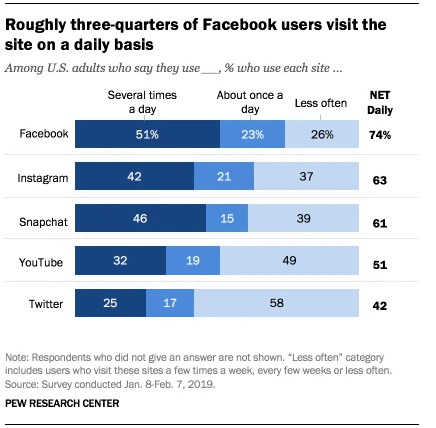We live in a world where we feel the need to share everything…pictures, job status, when and where we are going on vacation, where we ate dinner…and the list goes on and on. So much of our personal information is available to the public, and that’s not a good thing. Between Facebook and Google’s data collection policies and the rise in identity theft, now would be a great time to clean up your digital footprint. You’re probably saying to yourself, “I use strong and unique passwords. I mark sketchy emails as spam. I lookout for phishing emails. I’ve got Cybersecurity 101 down pat.” But with new threats popping up all the time, there are more in depth steps you can take to protect yourself. And the most important one of all: Clean up your digital footprint.
Most people have old email accounts floating around, forgotten flash
drives in a drawer, and years of downloads taking up space on a computer. Believe
it or not, holding on to accounts and files that you don’t want any more
needlessly exposes you to all sorts of risks. Your devices can be lost or
stolen (or hacked), and big companies can suffer data
breaches that incidentally expose your information. So the less
there is out there, the better off you are. “The physical presence of data
is so small that sometimes we don’t think about it as being clutter,” says
Michael Kaiser, executive director of the National Cyber Security Alliance.
“But we accumulate massive amounts of it, and some of it can be harmful if
it gets lost or stolen.”
Here are some tips from experts on how to clean up your online
data and improve your privacy:
1. Delete or Deactivate your Online Accounts
Think about all the shopping, entertainment and social media
websites that you’ve registered an account on. Big ones like
Facebook, Twitter, and Instagram are easy to remember (or they instantly log
you in with a saved password), but the chances are that you won’t be able to
remember every single account you’ve ever created. To delete most accounts, go
to your account settings and look for an option to deactivate, cancel or remove
your account. Most of the time it won’t be easy to find because they don’t want
you to leave. They may even offer you an incentive to remain a member.
2. Cancel
those App Accounts
Now that you’ve deleted your online accounts, time to delete your
app accounts. Look for apps on your phone and tablet, streaming devices, gaming
consoles, and computer that you don’t use anymore and shut them down. Do you
still have an account with a messaging app you used once two years ago? Why is
that calorie-counting app from 2014 still on your phone? Cancel and delete.
That type of exposure is an unnecessary risk. But just because you deleted if
off your phone, doesn’t mean it’s gone forever. Make sure you clean out and
close your account with the app developer so it retains the smallest amount of
data possible about you. Closing an account doesn’t mean that a company deletes
all your data or eliminates the basic things it knows about you, but it keeps
the account from staying active and potentially continuing to collect data.
3. Email
Accounts
The most important account to consider is your email, the central
data hub of your online life. Your email account is a valuable prize for a
hacker, because it contains information about tons of other people (friends,
family members, coworkers) in addition to yourself. Deleting emails you no
longer need and exporting old emails you still want to the cloud or a hard
drive is a smart way to reduce what would be compromised if your email was ever
hacked. Virtually all email services offer ways to export your messages
and other account data so you hold it locally and can delete it from the
company’s servers. And don’t forget to delete old email accounts that you no
longer use.
4. Destroy
Old Devices
First, let’s address the physical devices. Destroy old CDs, flash
drives, and external hard drives you don’t need anymore. Also consider old PCs,
gaming consoles, and smart home gadgets…just make sure you back up anything you
want from those devices before wiping them. Next, sort through your computer desktop
and clean out your documents folder. Eliminating old PDFs of credit card
statements or medical forms that you no longer need will go a long way toward
keeping you safer.
We’re
not telling you to part with data that is personally meaningful or useful, the
goal is to pare down what you have so if your data is ever compromised, hackers
aren’t able to easily access names, birthdays, and Social Security numbers. “When
we talk about security, we often talk about protecting our own things,”
Kaiser says. “But in reality, in the digital world we actually do sit on
large amounts of information about other people, and that’s something to
consider with decluttering and storing data more securely.”
5.
Survey the Scene
Take a step back and try to think of anything you might be
forgetting. Most email systems have search features allowing you to comb
through your old messages. You can bulk-delete everything from before a certain
date or everything from a particular contact. You should also regularly search
your email for the last four digits of your Social Security number and delete
any messages it appears in. “Think of the information you have
saved,” the United States Computer Emergency Readiness Team notes. “Is there banking or credit card account
information? Tax returns? Passwords? Medical or other personal data? Personal
photos? Sensitive corporate information? Depending on what kind of information
an attacker can find, he or she may be able to use it maliciously.”
Privacy Tips
Now that you’ve cleaned up your online data, here are a few tips to help maximize
your privacy in the future:
- Instead
of WhatsApp or Facebook Messenger, consider using an encrypted open-source
messenger app such as Signal or Telegram.
- Delete
unnecessary accounts and think carefully about making new ones
- Use
encrypted email services like Protonmail and Disroot
instead of Google, Yahoo, and Microsoft email
- Ideally,
use Mozilla Firefox or Brave as
your web browser instead of Chrome
- Use
privacy add-ons with your browser including HTTPS Everywhere, Self Destructing
Cookies, Ghostery and Privacy Badger
- Don’t use simple passwords and never use the same password for
every website




